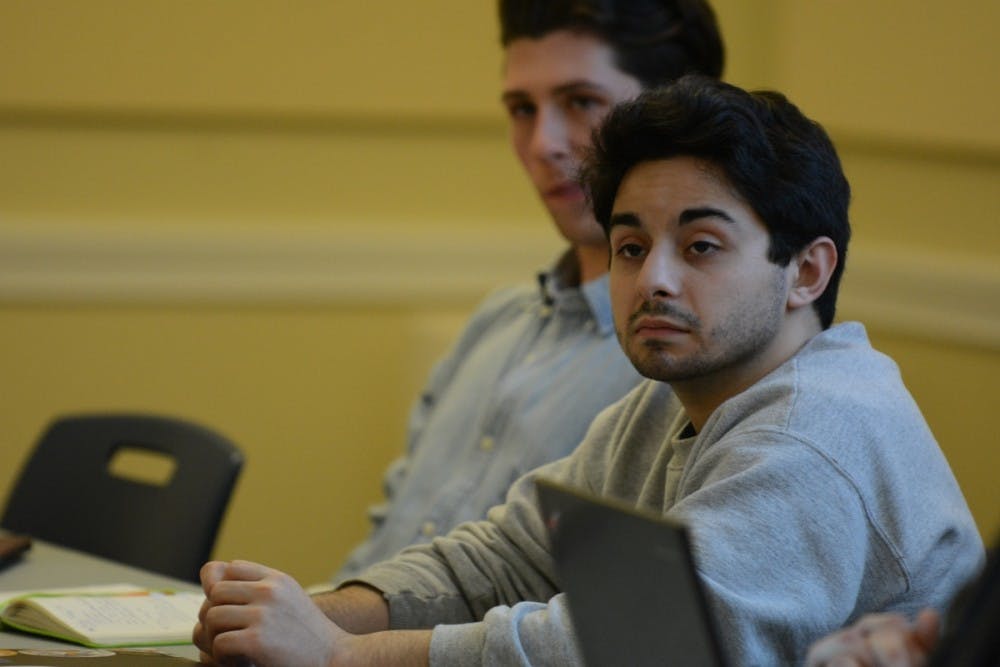In 1979, Howard the Duck won the Student Council presidential election over John S. Serpe. Ironic and embarrassing, the victory of a fictional Marvel Comics character over a living, breathing student at a university of “student self-governance” illustrates the apathy of the late 1970s. While it is hopeful to imagine such apathy was left behind, election results since 2014 show that it is thriving.
Using the amount of students voting for the Student Council president as a measure, the figures reveal a disheartening trend. In the past five elections, turnout among students exceeded 25 percent once in the 2017 election between Sarah Kenny and Kelsey Kilgore. Otherwise, every election witnessed less than a quarter of University students participating. This past election was no better, with only a 19 percent turnout rate and various offices left unfilled.
This lack of participation in student elections poses a dangerous threat. Foremost, low election turnout translates into a lack of accountability. Voting is the most powerful way to keep a representative in check. When so many students fail to vote, few remain to hold representatives accountable. Without accountability, representatives are less pressured to fulfill promises or to pursue ideas. Without this pressure, nothing changes from year to year. This is not a new phenomenon — the term “Tuesday night rep” was coined decades ago to describe representatives who only showed up for Student Council meetings on Tuesday. Outside of these meetings, such representatives do little to serve those who elected them. As students, we have our own unique responsibility to hold representatives to their word. Progress takes time and toil. A university of true self-governance must not settle for self-governance only on Tuesday nights.
Responsibility does not stop with voters, however. On the contrary, for self-governance to succeed, elected representatives must fulfill their responsibilities as well. The low turnout rates of student elections are not products of pure laziness. Rather, these low turnouts are driven by the belief that Student Council is largely irrelevant, sitting on its hands as its representatives build their resumes instead of combating student issues. The deafening silence and lack of progress regarding the “March to Reclaim Our Grounds” demands easily justifies this attitude towards Student Council. The faithful progress made by a tiny handful of representatives does not justify the greater inaction by the Representative Body, and such inaction speaks volumes. For students to invest in a student government, the student government must at least attempt to serve them.
Representatives are tasked with serving the student body by expressing students’ concerns and tackling their issues. If only 19 percent of the student body votes, it begs the question — who do these representatives truly represent? What of the other 81 percent of students attending the University? Who represents their issues? While students of the University are astoundingly bright, the 19 percent of the student body that voted does not capture the entire experience of the other 81 percent. With only 19 percent voting, issues of accuracy and underrepresentation exist. Student Council is unable to fix an issue if it does not first know it exists. If students interact with candidates and vote, more issues will enter into the limelight. Students would see the solutions they desire.
If more students voted, the diverse opinions that exist on Grounds would be introduced into the election. The 15,891 undergraduate students at the University carry different ideas key to solving numerous issues, big and small. Each student has a voice. At an institution focused on expanding the diversity of thought, such diversity must be represented within Student Council. Considering multiple opinions and debating contrasting ideas ultimately leads to results of the highest quality.
If students vote, and Student Council acts accordingly, the rights, opportunities and the quality of life for students at our University will truly improve. Rather than only watching solutions progress thanks to organizations such as the Dean’s Working Group, students would see peers take pressing matters into their own hands. By acting with the power vested in them, representatives would stand up for fellow students. By holding representatives accountable, students would see progress more often than just every Tuesday night.
On the heels of the past election, the incoming administration of Alex Cintron, Sydney Bradley and Ty Zirkle has the opportunity to set a new precedent. Through ensuring Student Council acts on the plethora of promises its representatives ran upon, the time to improve the relationship between students and their government is now. The incoming administration must act upon this opportunity, lest another year of empty promises and little progress passes. While the next election seems distant, students must do their part to hold Student Council accountable in the meantime as well. Only through this working relationship will groundbreaking progress be achieved in serving the students of our University. After all, is this not what self-governance is all about?
Matthew Nalls is a Viewpoint writer for The Cavalier Daily. He can be reached at opinion@cavalierdaily.com.








